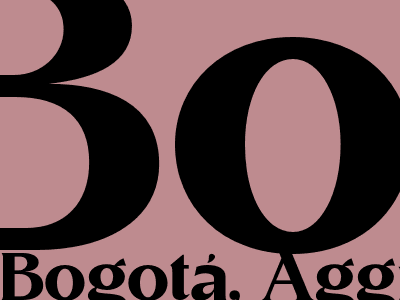
Bogotá's Surge in Aggression: A Profound Issue with Deep-Rooted Causes
The Escalating Violence: A Threat to the City's Fabric
Bogotá, the vibrant capital of Colombia, has witnessed a sharp rise in aggression, leaving residents on edge and raising concerns about the city's safety. This issue is not a recent development but rather a culmination of deeply rooted social, economic, and cultural factors that require urgent attention.
Underlying Causes: A Complex Web of Factors
The surge in aggression in Bogotá stems from a complex interplay of factors, including:
- Economic Inequality: Bogotá is a city with stark economic disparities, where a significant portion of the population lives in poverty. This inequality breeds frustration and resentment, which can manifest in aggressive behavior.
- Unemployment and Lack of Opportunity: High unemployment rates and limited economic opportunities contribute to a sense of hopelessness and despair. Individuals feeling trapped and without a path to a better future may resort to violence as a form of expression.
- Social Exclusion and Marginalization: Certain groups in Bogotá, such as the poor, indigenous communities, and migrants, often face social exclusion and marginalization. This can lead to feelings of isolation and discrimination, which can fuel anger and aggression.
- Historical Trauma and Violence: Bogotá has a history marked by violence and conflict. The legacy of past atrocities and the lack of proper reconciliation can contribute to a culture of violence and aggression.
Consequences and Impact: A City Under Strain
The rise in aggression in Bogotá has far-reaching consequences. It:
- Undermines Safety and Security: Residents fear for their safety when walking the streets or using public transportation. This undermines the city's sense of security and makes it difficult for people to live their lives with peace of mind.
- Hampers Economic Growth: Violence and aggression create an unfavorable environment for investment and tourism. Businesses may hesitate to invest in a city where there is a perception of instability and danger.
- Damages Social Cohesion: Aggression erodes trust and cooperation within communities. It can make it difficult for people to interact with each other in a positive and productive way.
Addressing the Crisis: A Multifaceted Approach
Tackling the rising aggression in Bogotá requires a comprehensive and multifaceted approach that addresses the underlying causes. This includes:
- Investing in Social Programs: Programs aimed at reducing poverty, creating job opportunities, and promoting social inclusion can help mitigate the root causes of aggression.
- Strengthening Community Policing: Building trust between law enforcement and the community can help prevent violence before it occurs. Community policing initiatives can foster relationships and address issues before they escalate.
- Promoting Education and Awareness: Education campaigns can raise awareness about the causes and consequences of aggression. They can also promote nonviolent conflict resolution skills.
- Addressing Historical Trauma: Acknowledging and addressing the city's history of violence is crucial for healing and reconciliation. Truth commissions and memorialization projects can play a role in this process.
Conclusion: A Call for Collective Action
The surge in aggression in Bogotá is a complex issue that requires a concerted effort from all stakeholders. By addressing the root causes, investing in social programs, and promoting a culture of nonviolence, the city can work towards reversing this trend and creating a safer and more harmonious environment for all.